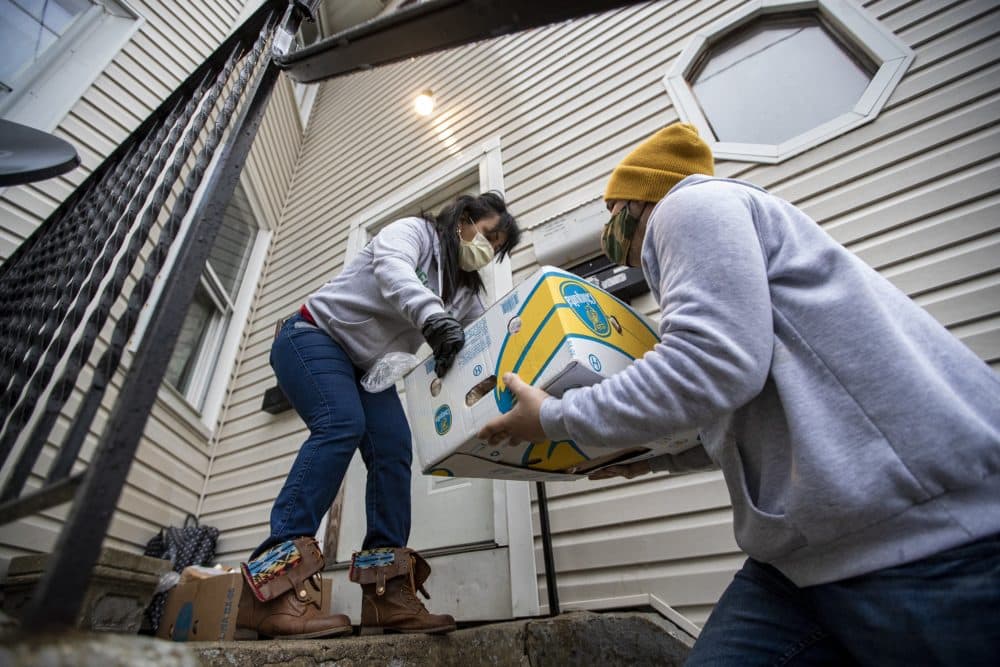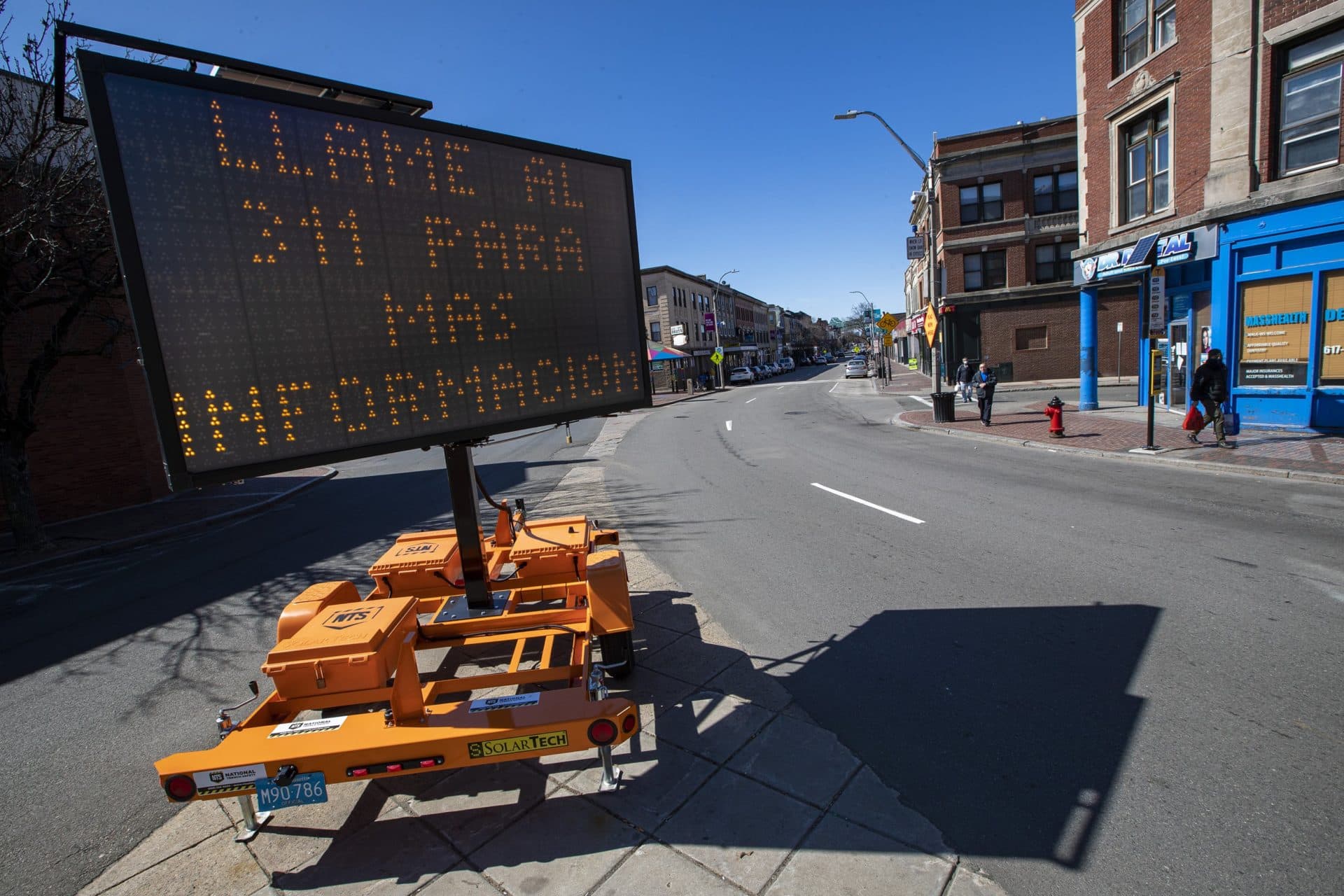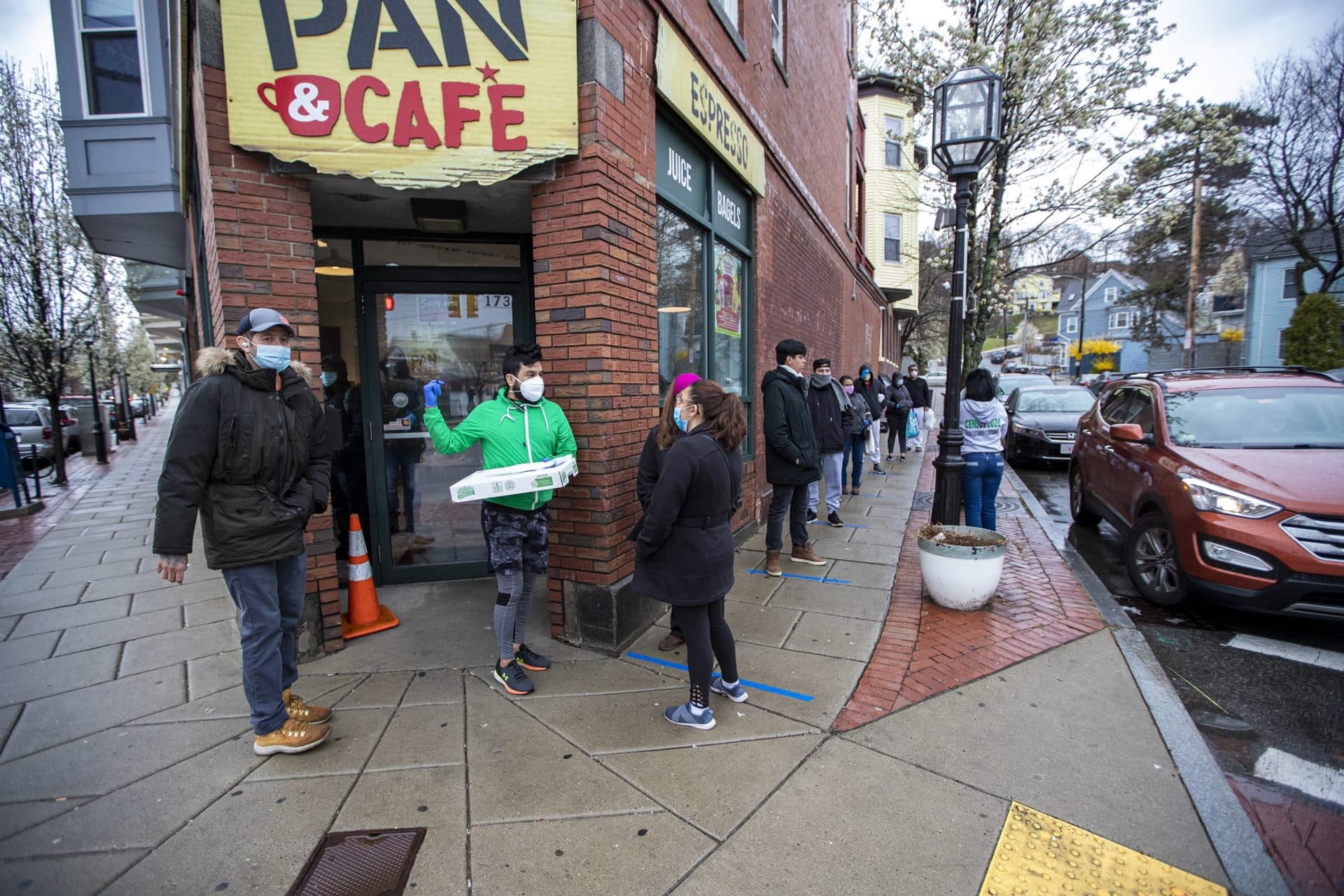Advertisement
Coronavirus Coverage
As COVID-19 Cases Mount In Chelsea, City Leaders Cry For Help
Resume
En español, traducido por El Planeta Media
Chelsea is home to some 40,000 people, according to the most recent U.S. census data. It's not one of the largest cities in the state, but one of the most densely populated.
More than 60% of residents are Latino, and almost half are immigrants.
"The people of Chelsea are about to die in numbers never seen before," says Maria Belén Power, who heads the community nonprofit Green Roots in Chelsea. "I'm crying right now, because I truly believe this is the perfect storm. These are people who don't speak English, the majority work in services, in restaurants, in airports."
According to an analysis of census data provided to WBUR by the Massachusetts ACLU, nearly 80% of Chelsea’s workers are considered essential under the governor’s stay-at-home advisory.
Power says when you say “essential employees,” you’re talking about most of Chelsea's labor force, and they work in sectors that don’t allow you to to work from home.
And even when they are home, many Chelsea residents don’t have the luxury to practice social distancing.
"I'm crying right now, because I truly believe this is the perfect storm."
Gladys Vega, head of the community group Chelsea Collaborative, says skyrocketing rents in recent years have caused many people in the city to live together, packed into small apartments.
"We live in overcrowded conditions, we live with our friends and our family members," Vega says. "We do couch-surfing. We rent a bed for the night and while we are at work someone else is sleeping in our bed. That's the reality of Chelsea.”
One such person is Joaquin Lux, who shares an apartment with four other people. He has been in Massachusetts General Hospital since last weekend, gasping for breath with the coronavirus. Lux says his sister is also sick with COVID-19.
According to MGH, the number of Latino patients being treated for COVID-19 is four times higher than the usual rate of Latino patients at the hospital.
Lux says doctors tell him the disease has reached an advanced state in his lungs. His fever has gone down and his body aches lessened, but he can barely breath.
In a few days, it’s likely that more than 1% of Chelsea residents will have tested positive for COVID-19. That’s approaching the level of New York City, and more than twice the rate of Boston.

According to Chelsea City Manager Tom Ambrosino, Chelsea has the highest rate of confirmed coronavirus cases among the 40 largest cities in Massachusetts.
“Right now the need is greatest in Chelsea," he says. "And I'm imploring the administration to deploy resources, MEMA resources, medical resources where the need is greatest.”
The Baker administration acknowledges that Chelsea, as well as Brockton and Revere, are emerging as hotspots in the coronavirus outbreak, and officials are assisting in setting up a hotel on Route 1.
But Ambrosino wants the state emergency management agency to open a quarantine facility in the Chelsea area. And he wants more assistance in the form of food, supplies, and rental assistance. For now, it’s falling on the city — and groups like Chelsea Collaborative — to provide key essentials.
Vega says the need for food in Chelsea is too great. She helped provide boxes to over 100 families yesterday afternoon, and by the time she ran out, there were just as many families waiting for more.
Vega says she’s glad the state is launching a new Spanish language platform to apply for unemployment. But she says 90% of the food is going to undocumented people who can’t quality for unemployment. And they’re too scared to apply for food stamps because it could further endanger their immigration status.

This story was produced in collaboration with El Planeta, which is working with WBUR to provided stories to the Spanish-speaking community.
This segment aired on April 10, 2020.

